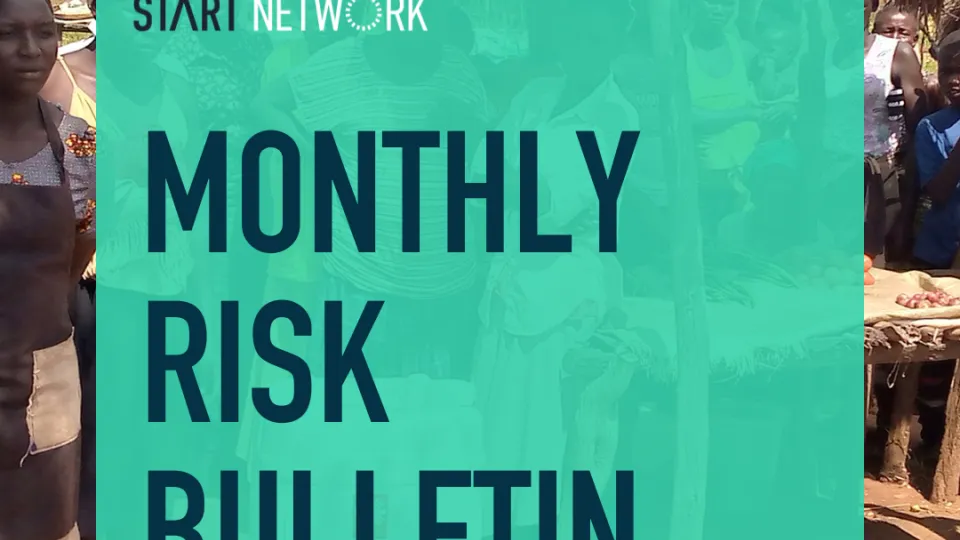
Start Fund Risk Bulletin: June 2025
The Start Fund monthly Risk Bulletin reports on new, emerging or deteriorating situations.

The Start Fund monthly Risk Bulletin reports on new, emerging or deteriorating situations.
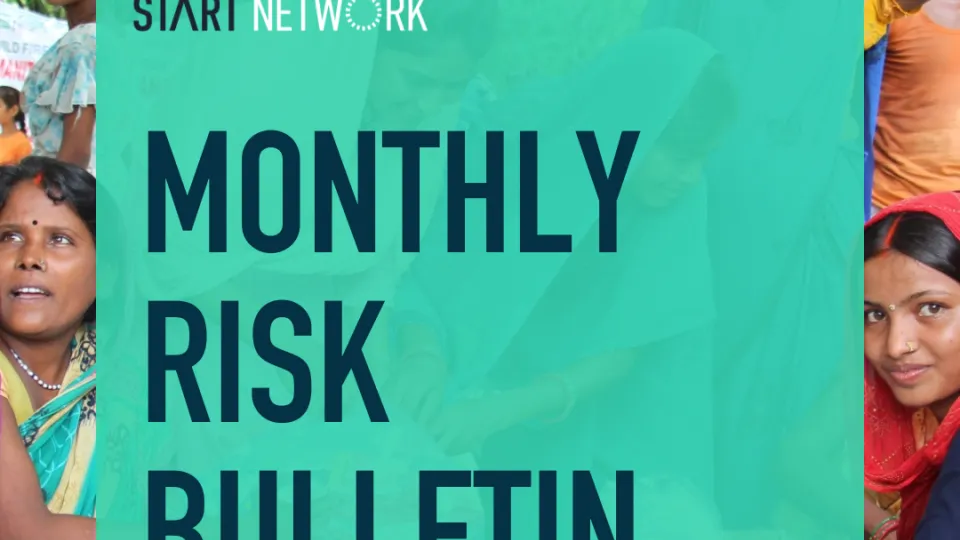
The Start Fund monthly Risk Bulletin reports on new, emerging or deteriorating situations.
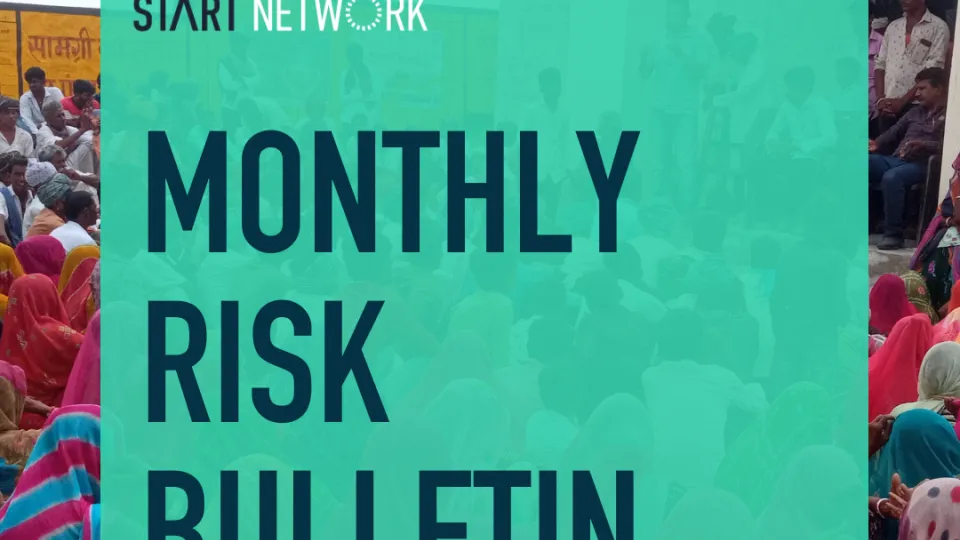
The Start Fund monthly Risk Bulletin reports on new, emerging or deteriorating situations.
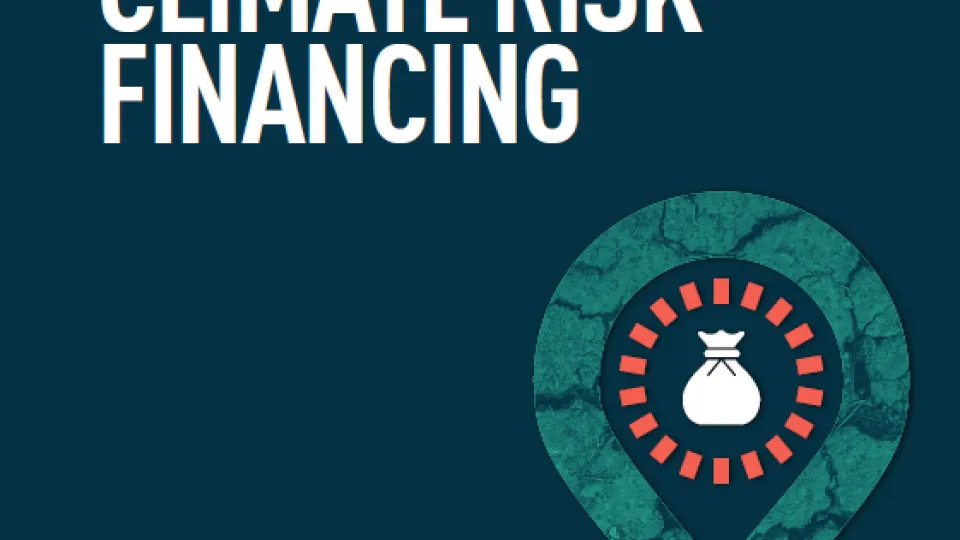
Start Ready was designed to be one of the practical ways that civil society can more effectively address loss and damage caused by climate change.
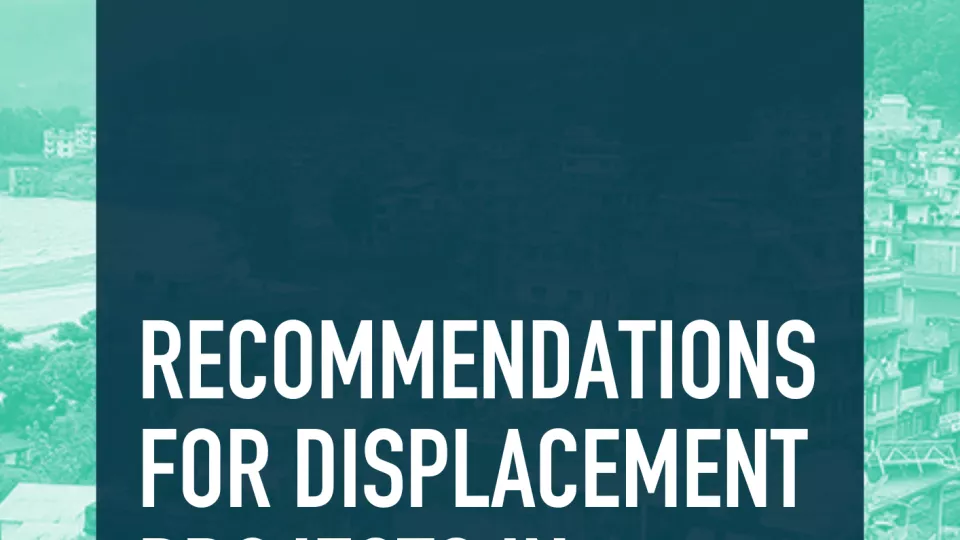
A document showing recommendations taken from projects delivered in the DRC around displacement caused by conflict. The recommendations span projects delivered between 2014-2022.
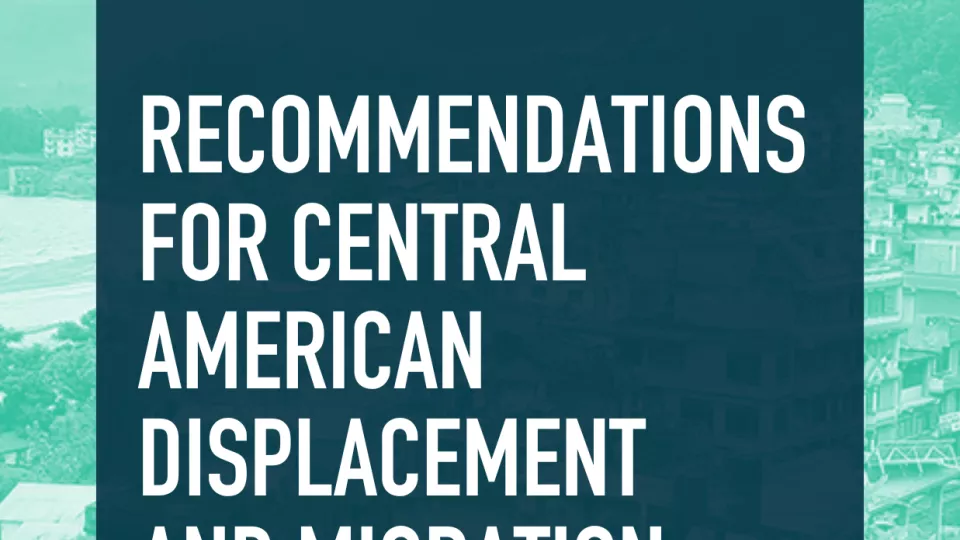
Taken from previous Start Fund-awarded projects, this document compiles recommendations that have been given by members about how to respond to migration crises in Central America.
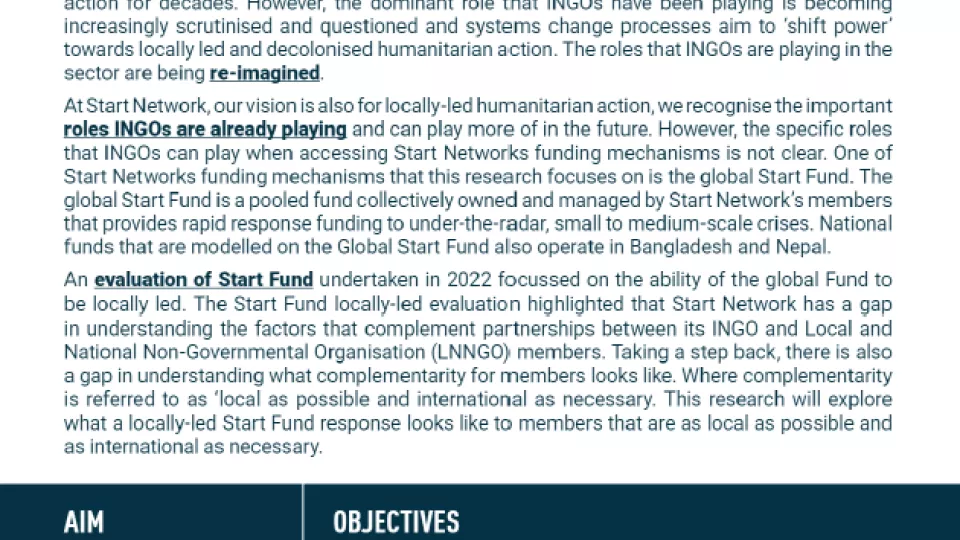
In 2022, an evaluation of the Start Fund explored ways the flagship programme could become more locally led.
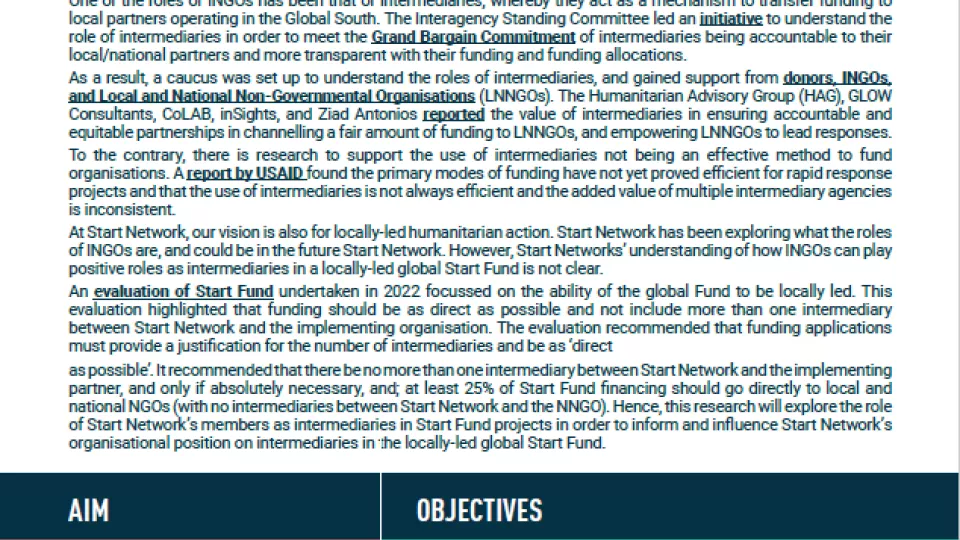
In 2022, an evaluation of the Start Fund explored ways the flagship programme could become more locally led. Two recommendations were made to Start Network, which required a deeper understanding of the role that members have as intermediaries and in complementary consortiums.
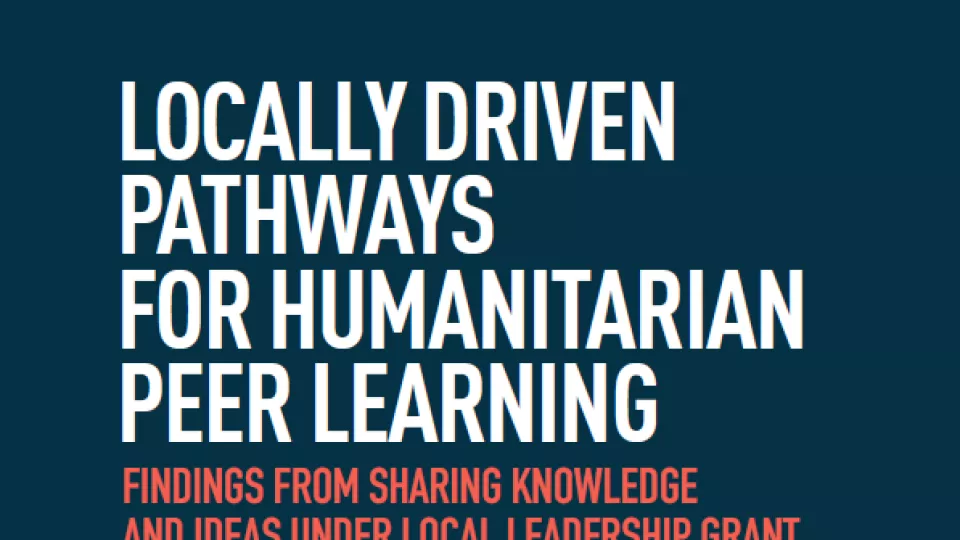
The Sharing Knowledge and Ideas under Local Leadership (SKILL) Grant was developed in 2021 so that Start Network’s local members could lead collaborative research projects and learn through partnerships. From January 2022, with grants of up to £15,000 GBP, eight local or national NGO organisations worked with a variety of partners to research humanitarian issues that they chose. Through this report, we document their experiences, impact and learning.
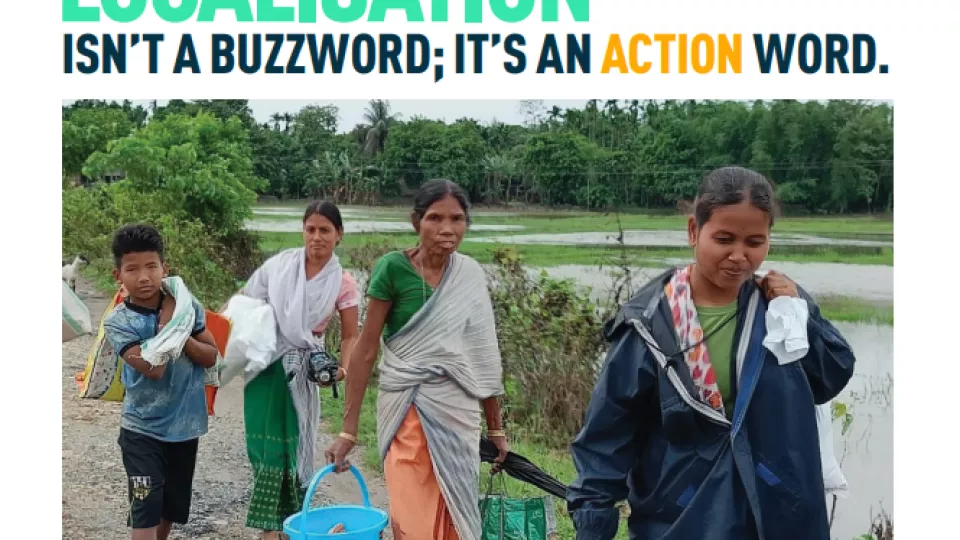
This locally led series aims to share with our global community evidence-based stories from our local partners through our programmes and funding streams.